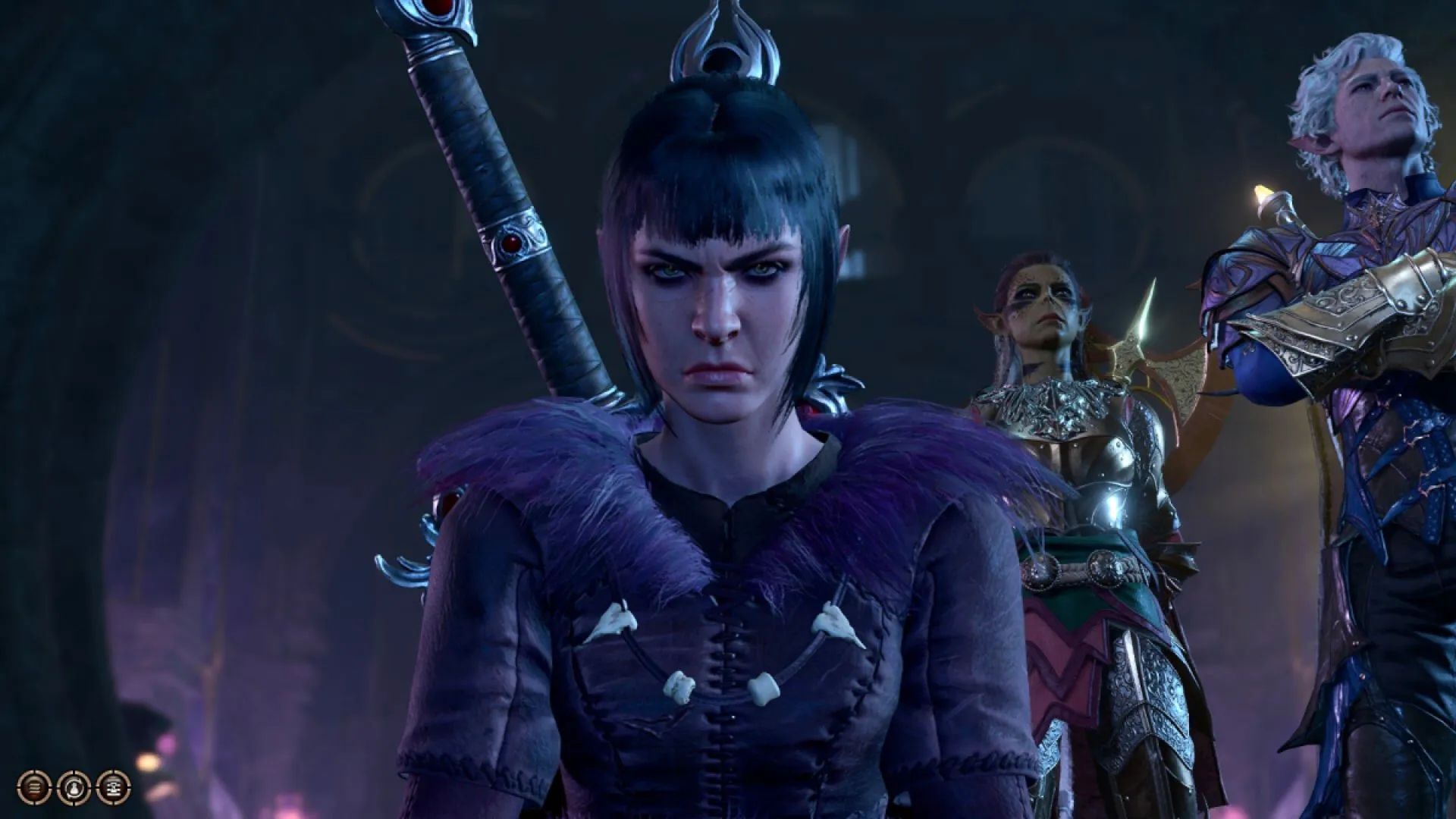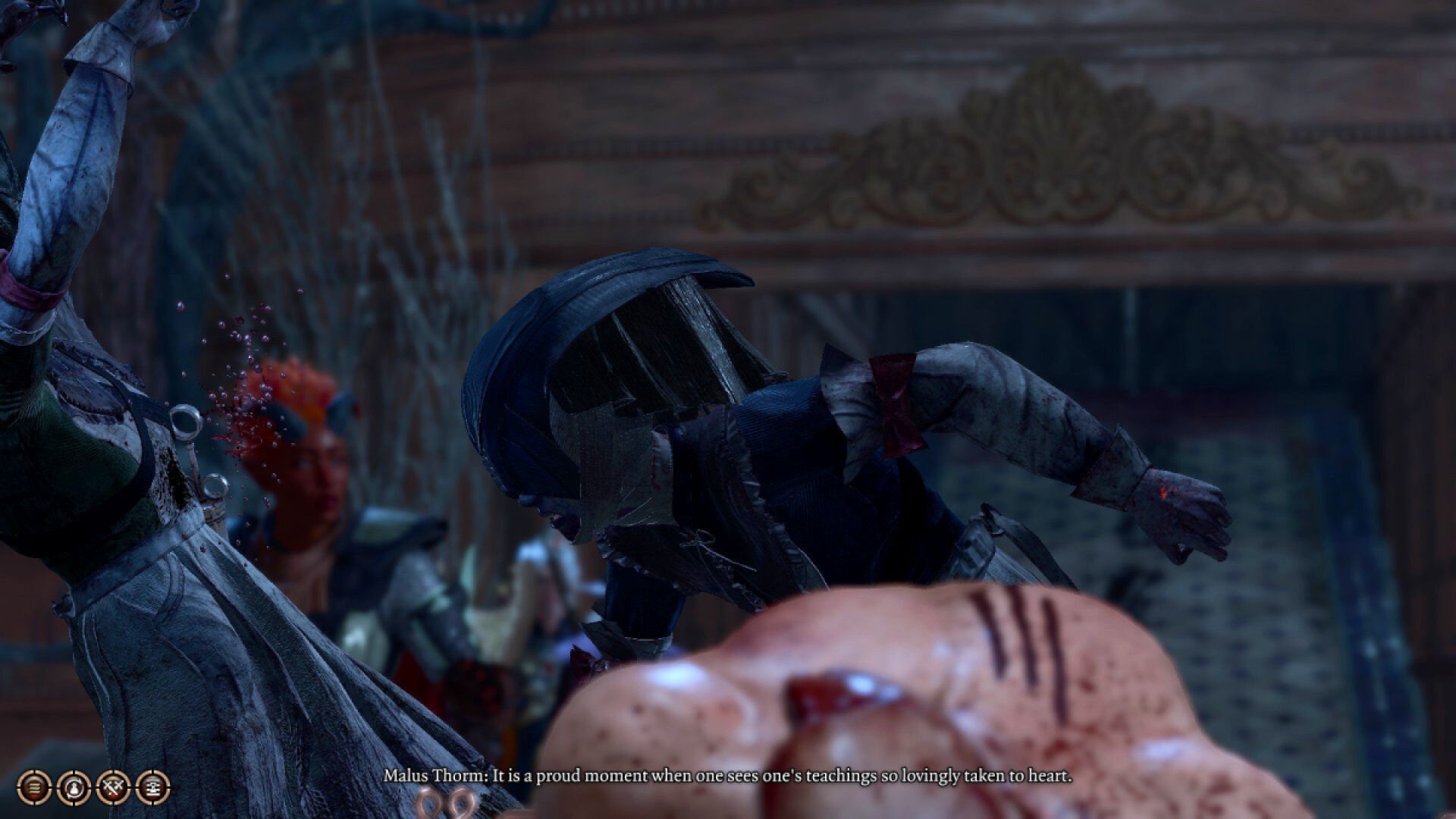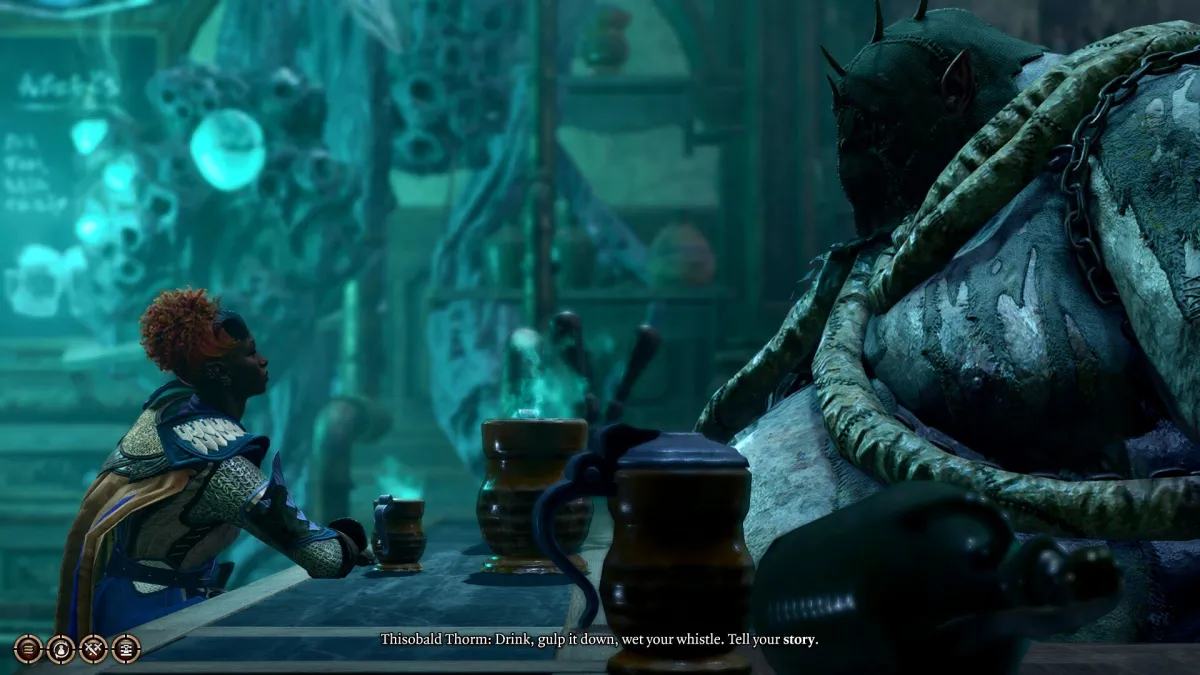Having played across four characters in Baldur’s Gate 3, I seriously could not imagine going through the game with low Charisma. Of the six main abilities that also include Strength, Dexterity, Constitution, Intelligence, and Wisdom, playing characters with high Charisma feels the most rewarding to my play style. These benefits go beyond the realms of story and interacting with the world. Good Charisma can also affect combat.
Because it’s the skill of communication, having high Charisma often translates to other related skills like deception, intimidation, performance, and persuasion. These sound like mostly negatives, but so far I’ve only played as “good,” even while battling the Dark Urge. (“Good” means I’ve refused to work with each Act’s big bad or big bads.) It all depends on how you use the skill.
As a “loot goblin” and a very cautious player, I’m often sneaking around places for as long as possible before engaging with characters in any way. Unsurprisingly, this has resulted in me getting into restricted areas and being forced to explain myself to guards. When I refuse to go to a cell or bribe them, I always opt to talk my way out of it. Sometimes this is accomplished with a lie, and other times it’s straight-up intimidation—both of which are common skills to charismatic characters.
Like disguising oneself as the trader’s race, high Charisma will sometimes positively affect the trader’s prices. It will help you get gossip, blend into crowds, and more later in the game.
Put down the battle axe

I will often approach situations with seeming neutrality by persuading the people I come across that I’m on their side until I’ve gotten as much info out of them as possible. It’s the talking equivalent of scouting all around a big area to see the best way to succeed in battle. This wasn’t something I realized I was doing until hours of play had passed. Talking to other characters first helps decide when and where (if at all) is the best time to fight. Some people like to use Illithid powers to prod around in people’s minds, but I’ve had bad luck with that. Also, there’s limited times you can do that. Having a character with high Charisma will just pull necessary info out consistently.
Some battles will allow you to change the tide and gain allies—if only temporarily—mid-fight. For example, in Act 1 (northeast of Wakeem’s Rest), there’s an active brawl outside of a cave that you immediately join when within range. Through the Absolute and the power of some high Charisma, I convinced the Gnoll warlord, Flind, to turn on her pack. This has proved even more rewarding in Act 2. As you make your way to Moonrise Tower, you’ll meet several members of the Thorm family. Each one of them can be talked out of a fight, and I managed to do just that with my incredible levels of Charisma and party buffs.
Light spoilers for Act 2 until the next section.
Thwarting thorny Thorms
Unfortunately, I didn’t realize this early enough and ended up in a battle with Gerringothe at the Tollhouse. It actually wasn’t until I met Malus Thorm in The House of Healing that I took the risk and was heavily rewarded with some jaw-dropping scenes. As a diabolical scientist, Malus experiments on various people and creatures. You walk in on him teaching a ritualistic procedure for his haunted students/nurses (whom he calls “sisters”). I convinced Malus that the sisters needed to practice with one another first.

As the picture shows above, once successfully rolling for Persuasion, the sisters hacked one another to death. After insisting I wasn’t ready for the procedure, I implied that he should show me first, and he brutally stabbed himself to death. This isn’t the only way to get past him without lifting a finger. I’ve seen other players convince the doctor to let the nurses practice on him first, and once he dies, the nurses just kind of roam about the auditorium. You miss their loot, but the important items on Malus’ person can be swiped.
The final living Thorm I confronted outside of Moonrise was Thisobald in The Waning Moon. At the brewery, you can trick Thisobald into drinking himself to death. There are more rolls than before, but it’s still possible. A Sleight of Hand bonus helps you to avoid drinking whatever nasty concoction Thisobald has brewed before he meets his end.
Don’t be consumed by the rizz

Talking your way out of fights (whether the enemy is alive or, in these cases, dead) does reward you XP. However, a few reloads revealed to me that it’s sometimes less XP than if I’d just fought. Another downside to avoiding all possible fights is the actual game experience you lose. Many fights are like puzzles and help you get better at combat and various classes. If you skip too many, not only will you be possibly at a lower level for the ones you can’t skip, but you might not be as well versed in combat. Certain spells, enchantments, and maneuvers might be completely new to you at a critical, inopportune moment.
Additionally, there’s something to gain from failing these Charisma checks. In a recent conversation on r/BG3 builds about the power of Charisma, one user discussed the option to “fail forward.” Used in many D&D circles, the action (and mindset) refers to letting rolls fail and seeing the story still play out. Larian often provides unexpected responses that provide humor, depth, and more only achievable by failing Charisma checks.
I know this because this happens with other attributes. Because my characters excel in Charisma, they often fail at other things during conversations. In dialogue, these failed checks (unprompted by my choices) limit my story and my character’s ability to detect lies. As a fairly trusting person, seeing that perception check fail with no notes from the game sets off alarm bells. It’s not always even lying, but still. I love having high Charisma in-game because the way it colors the story speaks to me. If you’re going to do another playthrough or respec with Withers, consider giving that ability more attention.
(featured image: Larian Studios screencapped by Alyssa Shotwell)










Published: Aug 31, 2023 04:43 pm